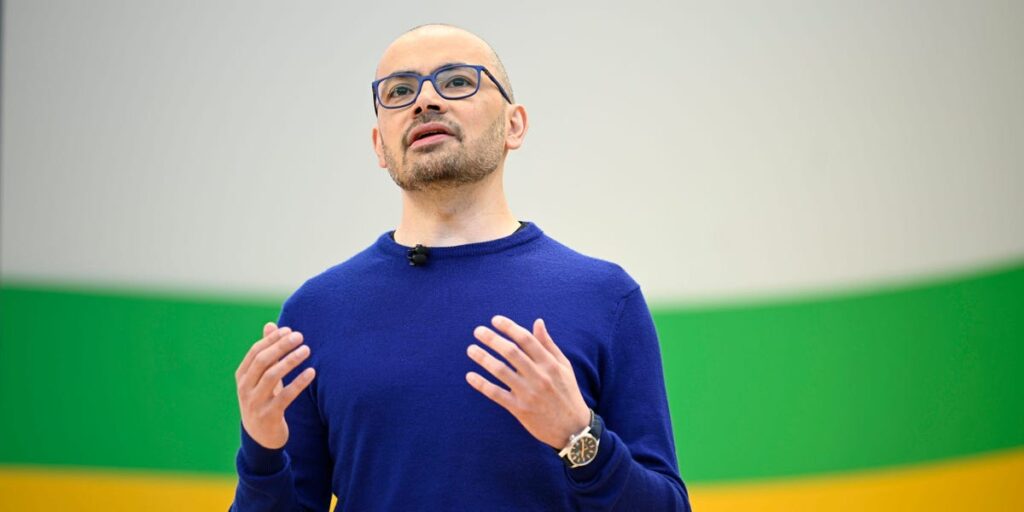Google DeepMind’s CEO says there is a simple reason Meta is spending millions of dollars to attract AI talent.
“Meta right now are not at the frontier, maybe they’ll they’ll manage to get back on there,” said Demis Hassabis on an episode of the “Lex Fridman” podcast published on Thursday. “It’s probably rational what they’re doing from their perspective because they’re behind and they need to do something.”
In the last few weeks, Meta launched an all-out talent war, offering researchers from frontier labs such as OpenAI up to $100 million pay packages to join its superintelligence division. Recent big-name hires include former GitHub chief Nat Friedman, Scale AI’s former CEO Alexandr Wang, and former OpenAI researchers Shengjia Zhao, Shuchao Bi, Jiahui Yu, and Hongyu Ren.
Hassabis said that while it is “rational” for Meta to be making these offers, many people in the AI space prioritize the mission to “steward that technology safely.”
“There’s more important things than just money,” he said. “Of course, one has to pay people their market rates and all of these things, and that continues to go up.”
Meta did not reply to a request for comment from Business Insider about Hassabis’ comments.
Last week, Anthropic’s cofounder Benjamin Mann said that his researchers did not make a “hard choice” to stay.
“We’ve been maybe much less affected than many of the other companies in the space because people here are so mission-oriented,” Mann said. “They get these offers and then they say, ‘Well, of course I’m not going to leave because my best case scenario at Meta is that we make money, and my best case at Anthropic is we affect the future of humanity.”
‘We are doing well through this moment’
Earlier this month, Business Insider reported, based on federal visa filings, how much top AI labs are paying their technical staff.
OpenAI is paying an average of $292,115 to the 29 technical staffers listed in the filings, with the highest-paid position earning $530,000 and the lowest earning $200,000. Anthropic pays an average of $387,500 to 14 technical hires, with the highest-paid position earning $690,000 and the lowest receiving $300,000.
Mira Murati’s new AI startup, Thinking Machines Lab, is paying two members of its technical staff $450,000 in salary, while another is getting $500,000.
Hassabis said that AI research was not always a well-paid profession.
“I remember when we were starting out back in 2010, I didn’t even pay myself for a couple of years because there wasn’t enough money. We couldn’t raise any money,” Hassabis said.
“These days, interns are being paid the amount that we raised as our first entire seed round,” he added.
The AI talent war has become so intense that some analysts worry it could increase the growing costs of staying ahead in AI.
On Google’s earnings call on Thursday, an analyst asked CEO Sundar Pichai about “AI-related resource costs” at Google, and how the competition affects the company’s ability to retain talent.
In response, Pichai said that Google has been through moments like this before and said its retention metrics are “healthy.”
“We continue to look at both our retention metrics, as well as the new talent coming in, and both are healthy,” Pichai said. “I do know individual cases can make headlines, but when we look at numbers deeply, I think we are doing well through this moment.”
Companies are deploying other tactics, too.
In April, BI reported that some Google DeepMind staff in the UK are subject to noncompete agreements that prevent them from working for a competitor for up to 12 months after they finish work at Google.
Read the full article here


